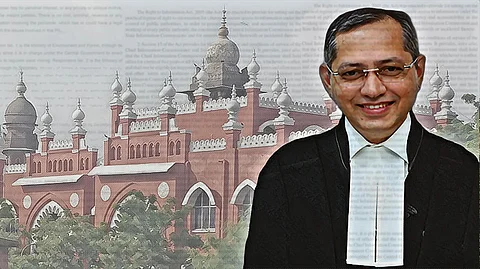
- News
- Columns
- Interviews
- Law Firms
- Apprentice Lawyer
- Legal Jobs
- हिंदी
- ಕನ್ನಡ

The Madras High Court recently referred to a larger Bench a petition filed by the second wife of a deceased man seeking disbursement of her husband’s pensionary benefits to her (Malarkodi v. The Chief Internal Audit Officer).